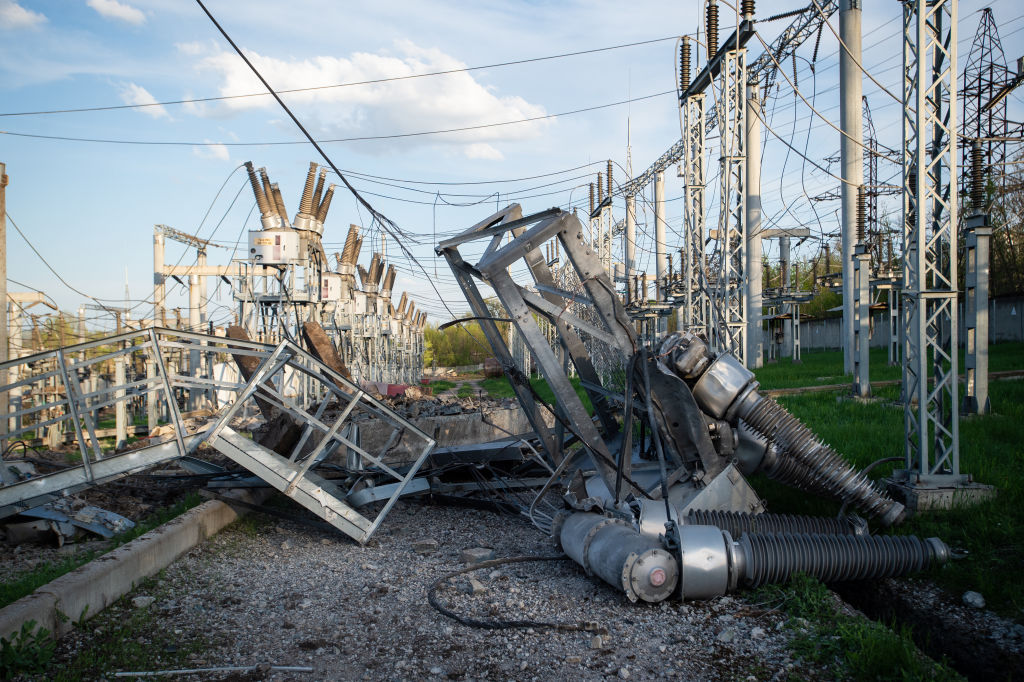Russia's offensive in the Donbas is 'not succeeding,' Ukrainian military says


A free daily email with the biggest news stories of the day – and the best features from TheWeek.com
You are now subscribed
Your newsletter sign-up was successful
Russian forces pressed the attack in eastern Ukraine on Saturday but failed to capture their three main objectives, the Ukrainian military said.
Per the general staff of Ukraine's armed forces, the Russians were attempting to capture the city of Lyman in the Donetsk Oblast and the cities of Sievierodonetsk and Popasna in the Lukahsk Oblast. The Pentagon said Russian forces are making only "plodding progress" in the face of intense Ukrainian resistance, The Washington Post reported.
According to Reuters, "Moscow said on Saturday its artillery units had struck 389 Ukrainian targets overnight." Artillery has played a major role on the eastern front, with some observers warning Ukraine may not have enough artillery rounds to keep pace with Russia's bombardment.
The Week
Escape your echo chamber. Get the facts behind the news, plus analysis from multiple perspectives.

Sign up for The Week's Free Newsletters
From our morning news briefing to a weekly Good News Newsletter, get the best of The Week delivered directly to your inbox.
From our morning news briefing to a weekly Good News Newsletter, get the best of The Week delivered directly to your inbox.
Russia's ongoing campaign in the Donbas, which it launched after failing to take Kyiv, aims to capture territory in eastern and southern Ukraine. A Russian general said earlier this month that Russia hopes to establish land bridges connecting the eastern separatist republics to Crimea and Moldova, a goal that would require seizing virtually all of southern Ukraine.
The largest obstacle separating Russian forces from the Moldovan border is the port city of Odessa. On Saturday, The Kyiv Independent reported Ukrainian police believe Russia has hired "criminal gangs to plot provocations and riots in Odessa" on May 2. In response, Odessa police have declared a curfew "from the evening of May 1 till May 3."
A free daily email with the biggest news stories of the day – and the best features from TheWeek.com
Grayson Quay was the weekend editor at TheWeek.com. His writing has also been published in National Review, the Pittsburgh Post-Gazette, Modern Age, The American Conservative, The Spectator World, and other outlets. Grayson earned his M.A. from Georgetown University in 2019.
-
 What to know before filing your own taxes for the first time
What to know before filing your own taxes for the first timethe explainer Tackle this financial milestone with confidence
-
 The biggest box office flops of the 21st century
The biggest box office flops of the 21st centuryin depth Unnecessary remakes and turgid, expensive CGI-fests highlight this list of these most notorious box-office losers
-
 What are the best investments for beginners?
What are the best investments for beginners?The Explainer Stocks and ETFs and bonds, oh my
-
 What is ‘Arctic Sentry’ and will it deter Russia and China?
What is ‘Arctic Sentry’ and will it deter Russia and China?Today’s Big Question Nato considers joint operation and intelligence sharing in Arctic region, in face of Trump’s threats to seize Greenland for ‘protection’
-
 What would a UK deployment to Ukraine look like?
What would a UK deployment to Ukraine look like?Today's Big Question Security agreement commits British and French forces in event of ceasefire
-
 Would Europe defend Greenland from US aggression?
Would Europe defend Greenland from US aggression?Today’s Big Question ‘Mildness’ of EU pushback against Trump provocation ‘illustrates the bind Europe finds itself in’
-
 Did Trump just end the US-Europe alliance?
Did Trump just end the US-Europe alliance?Today's Big Question New US national security policy drops ‘grenade’ on Europe and should serve as ‘the mother of all wake-up calls’
-
 Is conscription the answer to Europe’s security woes?
Is conscription the answer to Europe’s security woes?Today's Big Question How best to boost troop numbers to deal with Russian threat is ‘prompting fierce and soul-searching debates’
-
 Trump peace deal: an offer Zelenskyy can’t refuse?
Trump peace deal: an offer Zelenskyy can’t refuse?Today’s Big Question ‘Unpalatable’ US plan may strengthen embattled Ukrainian president at home
-
 Vladimir Putin’s ‘nuclear tsunami’ missile
Vladimir Putin’s ‘nuclear tsunami’ missileThe Explainer Russian president has boasted that there is no way to intercept the new weapon
-
 The Baltic ‘bog belt’ plan to protect Europe from Russia
The Baltic ‘bog belt’ plan to protect Europe from RussiaUnder the Radar Reviving lost wetland on Nato’s eastern flank would fuse ‘two European priorities that increasingly compete for attention and funding: defence and climate’
